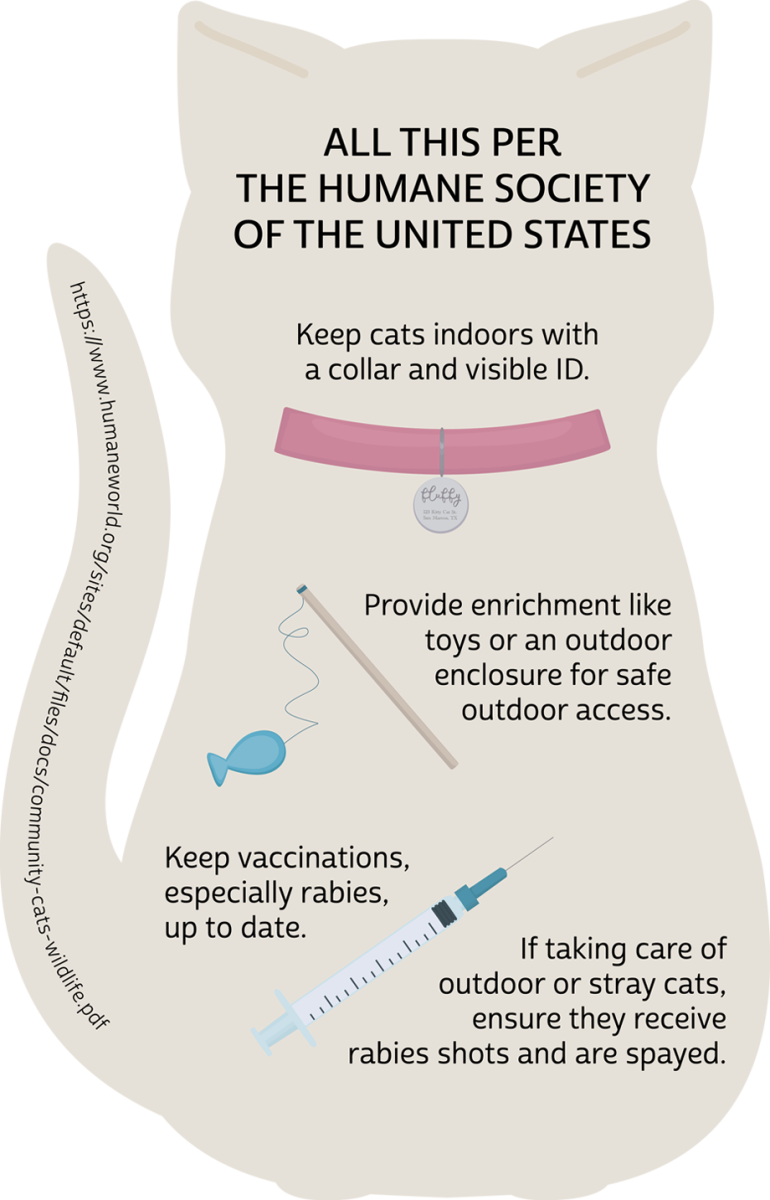Heart disease is one of the leading causes of death and a major cause of disability. February is American Heart Month, serving to promote heart health. While some risk aspects are uncontrollable, there are ways of preventing the controllable factors.
Taking care of the body now before issues begin to occur is highly suggested. Here are ways to get on track to prevent and promote heart health.
Control blood pressure
High blood pressure is a huge risk factor for heart disease. According to the American Heart Association, high blood pressure can damage your heart and blood vessels. Without testing, it is difficult to know whether these conditions exist within the body.
Dr. Alap Jani, cardiologist at Austin Heart Cardiac and Vascular Clinic-San Marcos, said blood pressure is one of the most important levels to pay attention to when getting tested.
“Your blood pressure is one of the main things looked at when determining heart health,” Jani said. “Making sure your levels are right and getting tests as recommended is one of the easiest ways to prevent any heart issues.”
It is important to get your blood pressure checked at least once a year, if not more, especially if someone does have high blood pressure. Because blood pressure puts someone at high risk for stroke, regular tests are recommended by doctors.
Keep cholesterol and triglyceride levels under control
High levels of cholesterol can clog the arteries and raise the risk of heart attack or coronary artery disease, which damages the hearts major blood vessels. Lifestyle changes and medicines can lower cholesterol if required or recommended.
Triglycerides are a type of fat in the blood. High levels of triglycerides can raise the risk of coronary artery disease, especially in women. These levels should be checked regularly along with blood pressure tests.
Maintain a healthy weight
Being overweight can increase the risk of heart disease. Excess weight can lead to conditions that may increase your chances of heart disease, including high blood pressure, high cholesterol and diabetes.
Tranise Pleasant, San Marcos American Heart Association Heart Walkcoordinator, said any amount of weight loss can be beneficial.
“Losing weight can start off slow and at a pace you’re comfortable with,” Pleasant said. “The American Heart Association does walks, and even though walking doesn’t take much effort, it can help, and money raised in events goes to research to better lives.”
Weight loss can help decrease triglycerides and blood sugar levels, as well as reduce a risk of diabetes. According to the National Heart, Lung and Blood Institute, losing even more weight can help lower your blood pressure and blood cholesterol levels.
Eat a heart-healthy diet
Changing eating habits can help reduce the risk of heart disease. A diet rich in fruits, vegetables and whole grains can help protect your heart and provide energy.
Eating beans, low-fat or fat-free dairy products, lean meats and fish are great foods to incorporate into a healthy diet. Managing glucose or blood pressure levels can be accomplished by avoiding unnecessary salt and sugars.
Limit alcohol
Drinking is a huge part of college culture. Watching the amount of alcohol one consumes is a vital, proactive way to lower risk of heart disease later in life. Drinking alcohol in moderation is the best option for a healthy heart.
Drinking too much alcohol can raise blood pressure and add extra calories, which may cause weight gain. All of these factors may lead to an increase in the risk of heart disease. It is recommended women of all ages and men older than 65 have a limit of one drink per day, and men younger than age 65 up to two drinks a day.
Exercise regularly
As a college student, between school and work, it may be hard to find time to work out. However, finding time to fit in exercise is very beneficial.
Amber Ruiz, exercise and sports science junior, said she tries her best to be as healthy and active as possible, given her busy schedule. High blood pressure runs in her family
“I try to take care of myself the best I can by working out or eating somewhat healthy food but it’s hard to do both 100 percent, especially when you go to school, work and are part of an organization,” Ruiz said.
Physical activities can help control weight and reduce the chances of developing other conditions that may put a strain on the heart. Simple activities like housekeeping, taking the stairs instead of elevators or walking your dog can make a difference. If just starting out, exercising strenuously isn’t needed to achieve benefits, but you can see growth by increasing the intensity, duration and frequency of your workouts.
Manage stress
Life can be stressful, which is inevitable. Learning how to manage that stress is one of the key approaches toward managing a healthy lifestyle. Stress is linked to heart disease in several ways and has the ability to raise blood pressure. Extreme stress can be a trigger for heart attacks.
There are many unhealthy ways of coping with stress, such as overeating, heavy drinking and smoking. Some ways to help manage your stress include exercise, listening to music or meditating.
Get enough sleep
Sleep deprivation is surely an issue in college, not only in terms of ability to retain information, but it is bad for your heart health as well. People who do not get enough sleep have a higher risk of obesity, high blood pressure, heart attack, diabetes and depression.
Most adults need at least seven to nine hours of sleep each night, even though this is easier said than done. Sleep apnea, which causes people to briefly stop breathing many times during sleep, can interfere with your ability to get a good nights rest and can raise the risk of heart disease.
Any small effort can form good habits to having and maintaining a healthy heart. Making changes now can be beneficial to prevent any health issues from arising later in life. College students are at a higher risk for cardiovascular disease, so taking action now is the best advantage toward heart health. For more information on American Heart Month, visit the AHA website, www.heart.org.
Categories:
Staying heart-healthy for American Heart Month
February 12, 2019
0
Donate to The University Star
Your donation will support the student journalists of Texas State University. Your contribution will allow us to purchase equipment and cover our annual website hosting costs.
More to Discover









